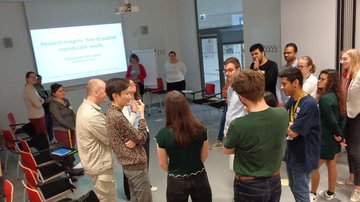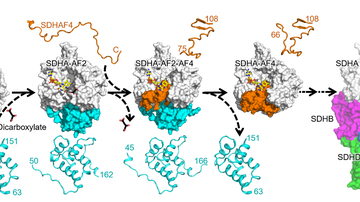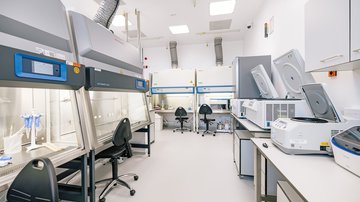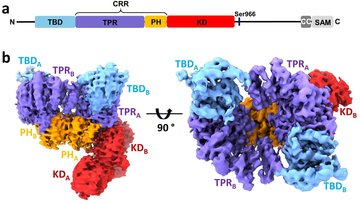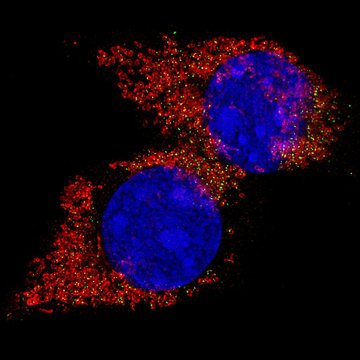
The New Role of Mitochondria in Cancer Growth
Press Release
Vestec u Prahy, 6 December 2018 – Researchers from the Institute of Biotechnology of the Academy of Sciences at the BIOCEV Centre have recently demonstrated that when introduced into laboratory mice, cells with mitochondrial DNA (mtDNA) disorders must restore their respiration by “stealing” mitochondria with undamaged mtDNA from surrounding non-cancer cells. Otherwise, they are not able to form a tumour. However, it had not been clear why respiration was so important for tumour formation. This question has been clarified through follow-up research.
“Mitochondria are small intracellular units that produce the requisite energy inside cells for a number of processes, including cellular growth, which is the basic attribute of a cancer tissue,” says Prof. Jiří Neužil, head of the Molecular Therapy Laboratory. “Energy production in mitochondria is dependent on mitochondrial respiration, i.e. oxygen consumption. An important property of mitochondria is the presence of genetic information – mtDNA – which is necessary for the respiration process,” adds Neužil.
However, no correlation between the ability to form tumours and a lack of energy had yet been proved. It was necessary to look for a new path. While searching for this new path, researchers discovered that mitochondrial respiration is needed for the formation of pyrimidines, the building stones of DNA, which is essential for cellular growth.



After being introduced into a host (mouse), cancer cells without mitochondria DNA gradually restore mtDNA. The images shows cells at the beginning and 10, 20 and 60 days after introduction into the host. The blue colour marks the cores, the red colour is mitochondria and the green is mtDNA

Cancer cells with an mtDNA disorder cannot respire and therefore, they do not form pyrimidines. This blocks their growth and suppresses the growth of the entire tumour. Once they obtain mitochondria from surrounding cells and restore their respiration, cancer cells can resume producing pyrimidines and continue growing. The tumour thus continues to grow.
“Our discovery, published in the prestigious journal Cell Metabolism, is very interesting both with respect to basic research and its possible application in clinical practice,” explains Prof. Jiří Neužil about the application potential of the new finding. “The above mechanism might be common among many types of tumours, as a universal property of cancer cells is rapid growth for which an intensive formation of pyrimidines is needed. We believe that this discovery will result in the design of new, broad-spectrum anti-cancer substances.”
Publication reference: Bajzikova et al. Reactivation of dihydroorotate dehydrogenase by respiration restores tumour growth of mitochondrial DNA-depleted cancer cells Cell Metabolism (in press). doi: 10.1016/j.cmet.2018.10.014.








